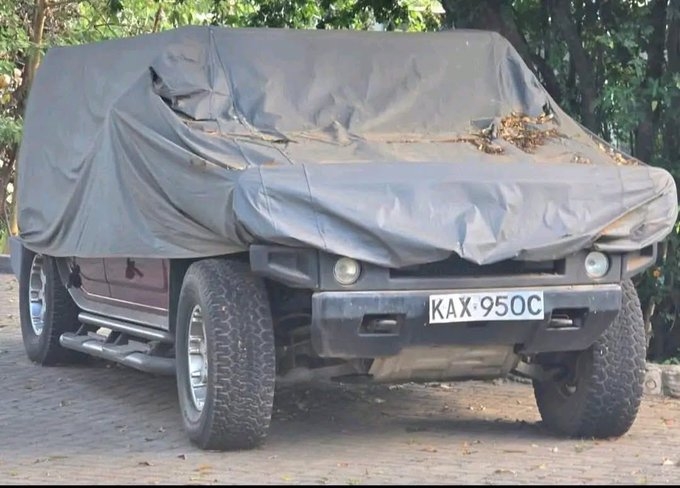
The Court of Appeal has upheld the life sentence of a man convicted of defiling an 11-year-old girl in Molo, Nakuru County.
In a judgment delivered on July 4, 2025, the appellate court dismissed the second appeal, in its entirety, finding that the conviction and sentence imposed by the trial court and affirmed by the High Court were legally sound.
The appellant had been convicted by the Chief Magistrate’s Court at Molo in 2017 for defilement contrary to Section 8(1) as read with Section 8(2) of the Sexual Offences Act.
He was sentenced to life imprisonment.
Justice Joel Ngugi dismissed his first appeal to the High Court in Nakuru in a decision delivered on September 18, 2019.
The charge arose from an incident on October 13, 2016.
On that day, the complainant, a child aged 11 years, was at her home in Molo when the appellant asked her to accompany him to a Court.
He was known to her. Instead of taking her there, he led her into a maize plantation. There, he covered her mouth and defiled her.
After the incident, the child crawled out of the plantation, bleeding and in distress. She was found by a school watchman.
She reported to him that it was “askari wa hema” (the officer from the tent) who had done “tabia mbaya” (bad behaviour) to her.
A report was made to the authorities. The child was taken to the hospital. A P3 form confirmed that she had suffered second-degree perineal tears. She underwent surgical repair.
The appellant was arrested and charged. A blood-stained cloth was recovered from him. A government analyst confirmed the presence of human blood consistent with the complainant’s blood group.
The prosecution called 12 witnesses, including the complainant, her sister, neighbours, police officers, medical practitioners, and the analyst.
The trial court found the prosecution’s evidence credible and consistent. It held that the three elements of the offence—age, penetration, and identification—had been proved beyond a reasonable doubt.
The appellant was convicted and sentenced to life imprisonment.
In his appeal before the Court of Appeal, the appellant raised eight grounds.
He challenged the identification, alleged inconsistencies in witness testimony, questioned the medical evidence, and argued that his defence had been ignored. He also contended that the life sentence was excessive and unconstitutional.
The appeal was heard by Justices Mativo, Gachoka and Odunga. The court stated that its role was confined to questions of law under Section 361 of the Criminal Procedure Code.
On identification, the appellant argued that he had not been subjected to an identification parade.
The court dismissed this ground. It noted that the complainant knew the appellant and identified him immediately. Other witnesses also testified that they saw the two together shortly before the incident.
“The complainant and her sister, who testified as PW6, had known the appellant for some time and hence there was no need to conduct an identification parade,” the court noted.
On penetration, the court found that the medical evidence was clear. The complainant had massive injuries. She was bleeding profusely and required surgery.
“There was overwhelming evidence of penetration. Indeed, according to the medical evidence contained in the P3 Form and the PRC Form, the penetration was so vicious that the Complainant was bleeding profusely after her vaginal walls suffered massive tears. She required surgical repair of the vagina,” the judges said.
The appellant had questioned the age of the complainant, citing varying accounts by witnesses.
The court held that exact figures were not required.
“There is no requirement to establish the age of the victim with mathematical precision,” the judgment stated. “It is sufficient that the court is satisfied the child was below 11 years.”
On alleged contradictions in the prosecution's case, the court acknowledged minor inconsistencies but ruled they did not undermine the evidence.
“Minor or trivial contradictions do not affect the credibility of a witness, nor can they vitiate a trial. It is only when such inconsistencies or contradictions are substantial and fundamental to the main issues that an accused is entitled to benefit from them.”
The appellant also claimed that the trial court ignored his defence. He had stated that he was not the only officer at the camp and suggested another officer may have been responsible.
However, he called no witnesses to support that claim. The court found that the trial magistrate considered the defence but was not convinced.
“The learned magistrate did not believe the appellant since there was independent evidence implicating him. It is therefore not correct for the appellant to state that his defence was not considered,” the judges noted.
The final issue raised was the legality of the sentence.
The appellant argued that a mandatory life sentence violated his constitutional rights. He claimed it denied the court discretion and was harsh and disproportionate.
However, the judges rejected this argument.
“Unless and until the minimum sentences under the Sexual Offences Act are challenged through the correct legal process and declared unconstitutional, they remain valid and binding,” the court ruled.
After addressing all grounds, the judges concluded that the conviction was safe and the sentence proper.
“The ingredients of the offence of defilement under Section 8(1) and (2) of the Sexual Offences Act were proved beyond a reasonable doubt. The appeal is without merit and is hereby dismissed,” the court held.
















